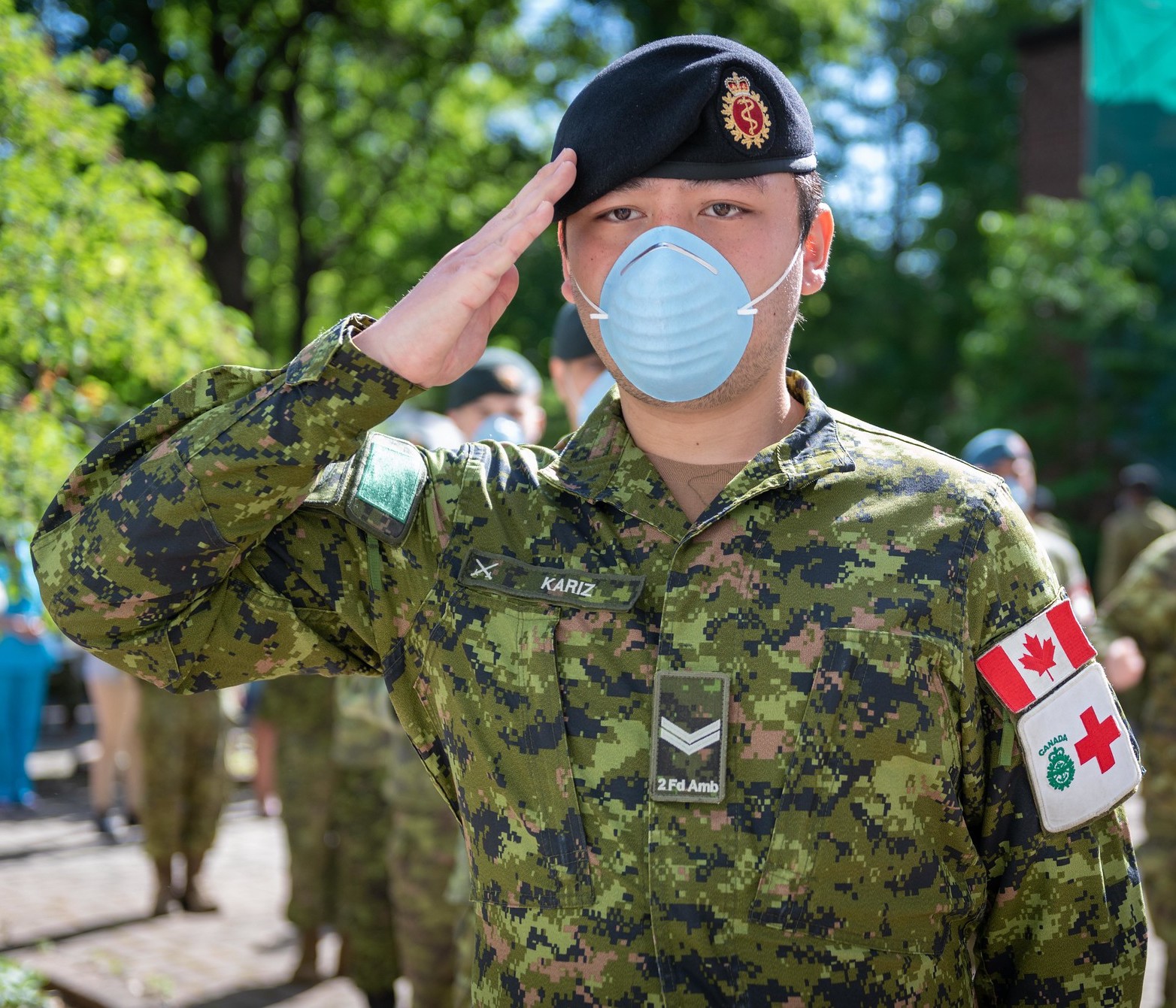
Cpl. Dilhosh Kariz, medical technician from 2nd Field Ambulance, salutes during a departure ceremony at a long-term care facility in Montreal, QC, as part of Operation LASER June 8, 2020. Photo by Aviator Zamir Muminiar/Imagery, 2nd Canadian Division, St. Jean/Montreal
Written by guest blogger Lacey Cranston.
It’s been eight months since our lives and routines were upended by the COVID-19 pandemic. For the most part, we’ve adapted to the “new normal” of wearing masks in public, endless hand sanitization, and social distancing.
Two things, however, have not changed: 1) our desire to return to a safer, less complicated existence, and 2) our yearning for reliable, accurate information about the virus and its impact. The two objectives are inherently linked, but, with so much misinformation, rhetoric and dubiousness dominating the conversation, it’s difficult to tell fact from fiction.
This is where the calm voice of science — steadfast in its approach, meticulous in its analysis — rises up to fill the void, and guides actions and decisions of monumental significance with a steady, practiced hand. For military members, Veterans and their families, the Journal of Military, Veteran and Family Health’s special issue on COVID-19 is that voice.
In the early days of the pandemic, our researchers and authors banded together to examine the impact of COVID-19 in a military and Veteran context. They worked hard to produce evidence-based, responsible content, governed by the rigours of science. From their effort, “Addressing the needs of military members, Veterans and their families during the COVID-19 pandemic,” was produced.
Included articles focused not only on emerging research, but also historical learnings, clinical observations and rational arguments — essential tenets of good science. Taken together, the articles in this volume form a balanced, unbiased, and robust picture of the impact of COVID-19, to date, on a specific sub-set of the population. They are well positioned to inform future research and, ultimately, practice, program and policy development.
Due to the conscientious efforts and exacting standards of our researchers, authors and peer reviewers, “Addressing the needs of military members, Veterans and their families during the COVID-19 pandemic,” rose above the din to become a reliable and honest source of information amid so much inaccuracy.
While the conversation on COVID-19 is far from over, this special issue begins a discussion that contributes to the ongoing dialogue about the pandemic. Let it be the first step towards an eventual return to a safer, less complicated existence.

Lacey Cranston is the Managing Editor of the Journal of Military, Veteran and Family Health (JMVFH), the official scholarly journal of the Canadian Institute for Military and Veteran Health Research. The journal publishes world-class research that enhances the physical, mental and social well-being of military members, Veterans and their families.
The UTP Journals blog features guest posts from our authors. The opinions expressed in these posts may not necessarily represent those of UTP Journals and their clients.
To continue with the University Press Blog Week Tour, visit the posts at other contributing presses.
Amherst College Press
Bristol University Press
Bucknell University
Duke University Press
Georgetown University Press
Johns Hopkins University Press
Penn State University Press
Temple University Press
UBC Press
University of Illinois Press
University of Manitoba Press
University of Toronto Press
Wilfrid Laurier University Press
Comments on this entry are closed.